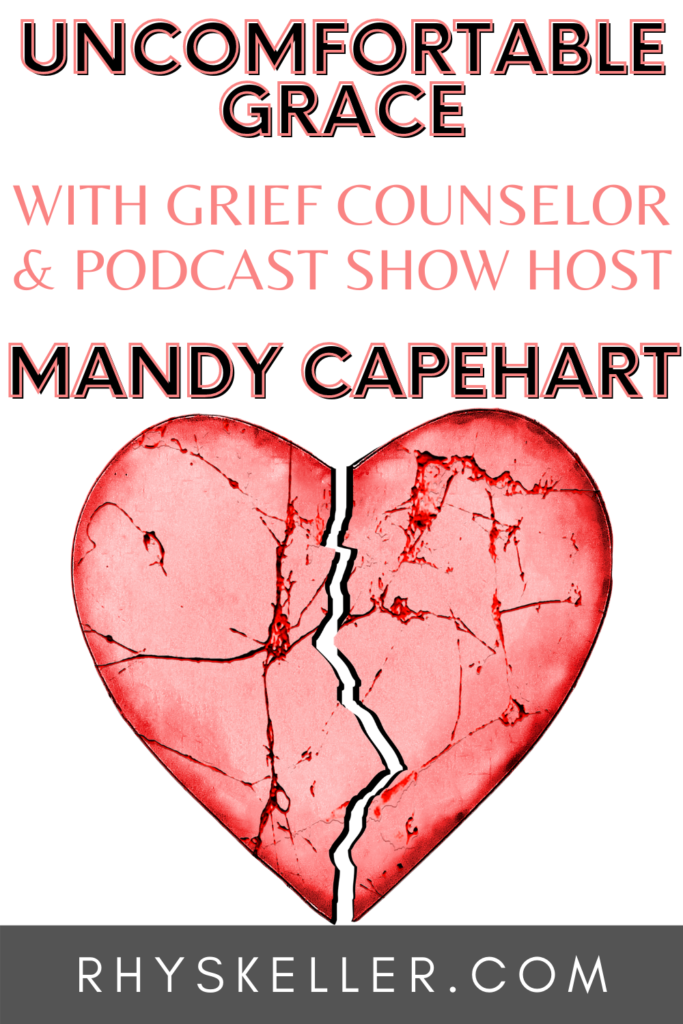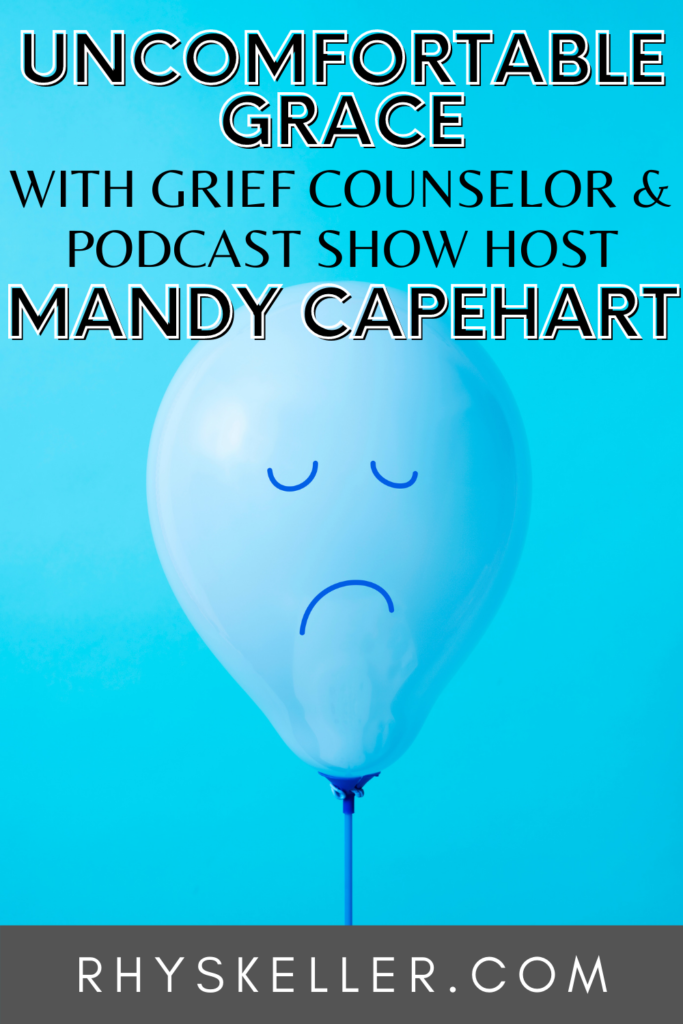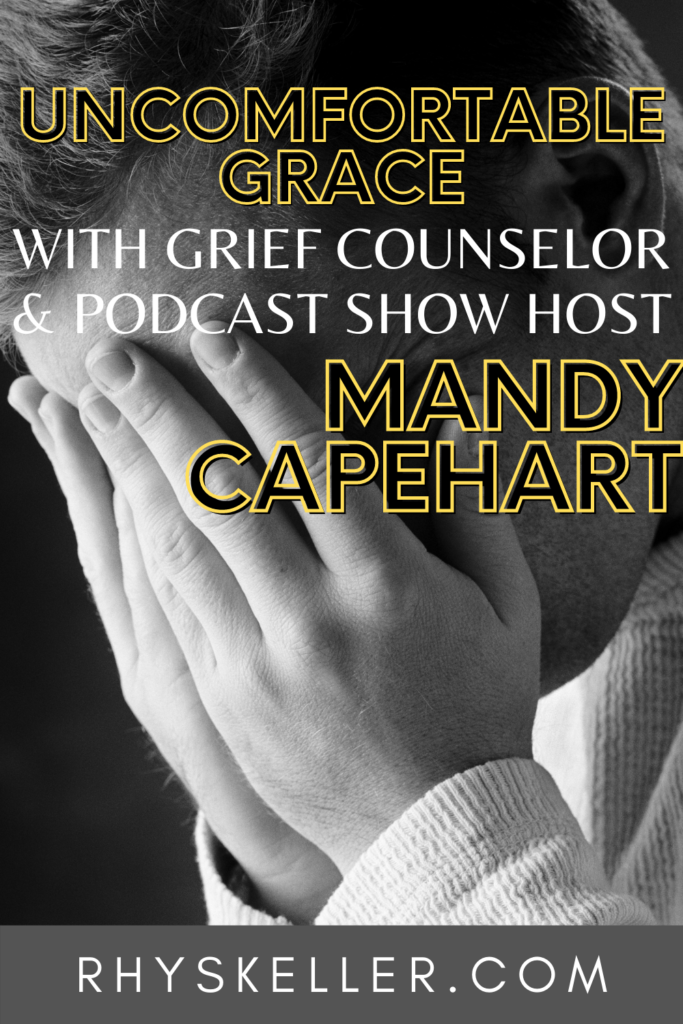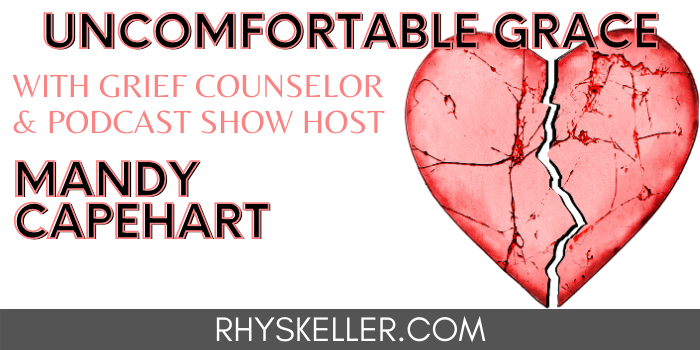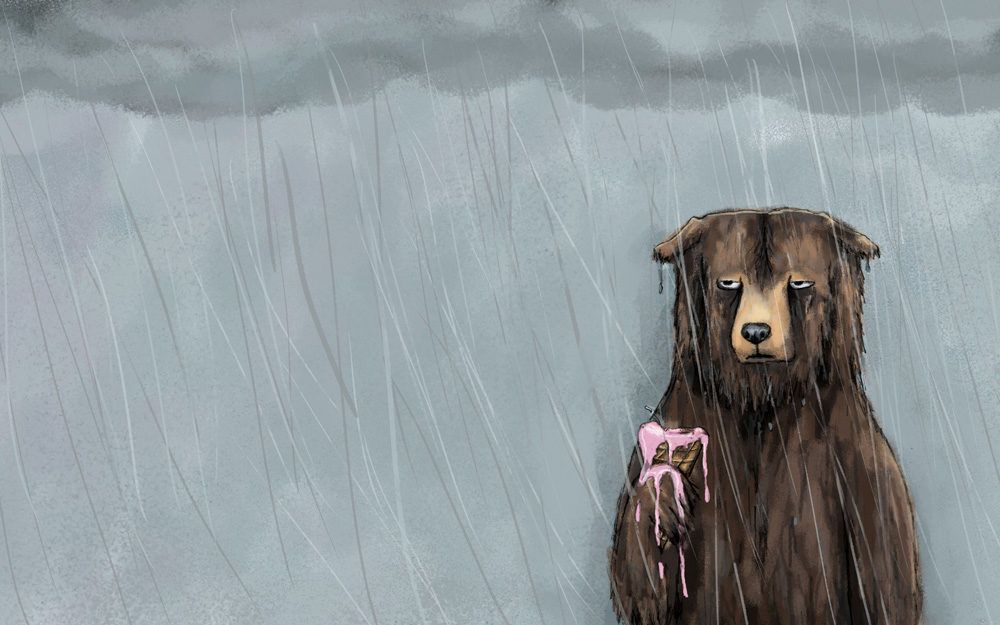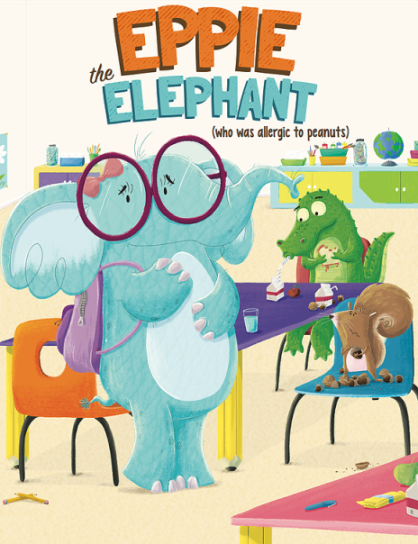Have you ever struggled finding the right words to say to someone in a moment of grief? Would you like to learn new ways of dealing with difficult situations in your own life? Join me and professional grief counselor and podcast show host Mandy Capehart for a deep dive into grief, growth, and how to cultivate a healthy mindset. Chock full of actionable tips and communication strategies, this interview will leave you feeling more equipped and capable of handling life’s surprises.
When you buy through my links, I may earn money from my affiliate partners. Learn more.
Mandy, thank you for sharing your journey with us! You have a LOT of irons in the fire. You’re writing a book, run an established podcast, and provide professional counseling services. It’s as if your whole life has been zeroing in on the intersection of grief and grace and you’ve embraced these two concepts as your own personal brand. Could you take us back to 2018 when your podcast was just a dream? What had been leading up to that Kairos moment?
There are always a lot of Very Good Things (as I call them) happening in my world. In 2018, I was taking on a grassroots organization called Women’s Fight Night, which is a monthly storytelling group of women sharing their experiences of faith and how God intervened in their lives. I was dreaming big, and trying to get out of a rough employment situation. I woke on a Monday to a literal dream with the word, “Podcast.” It was all I could recall.
That evening, I was at a FightNight event and mentioned the dream casually to my now co-host, Heather (also a part of our FightNight team). She went wide eyed, telling me a mutual friend just encouraged her to start a podcast a few days prior. She invited me to partner with her and I said yes with much hesitation! We’ve joked about it, but I wasn’t certain I wanted to build it with her yet. So we spent a long time praying about it and talking through what it could become.
Starting a podcast is one thing, but creating a powerful podcast brand that brings the heat week after week and month after month over the long haul is impressive! What differences do you see or feel in The Uncomfortable Grace Podcast now compared to when it first launched? How did you wade through those beginning, foundational decisions in format, hosting, recording, distributing, etc.?
Well, I’m definitely a stronger interviewer now than when we started. Knowing how to listen to subtext, ask leading, open-ended questions without inserting my opinion, and inviting vulnerability by building trust prior to the interview are all skills that I feel are required for a great podcast host. When we first started recording, it was a month prior to the pandemic shutdown in the US. We had some momentum, then lost it all trying to sort recording schedules via Zoom along with our hesitation about the pandemic.
We stumbled in the beginning a lot with loss of progress and overall uncertainty. I think our vibe has always been professional but approachable – like three women you’d enjoy chatting with in a coffee shop – rather than stuffy or too casual.
We’re trying to strike a balance and episodes now show that a lot more than our earlier episodes. We were definitely trying to establish our expertise. Now, we’re just trying to sort through interview requests and be more consistent with marketing.
After listening to your shows, it’s obvious that each of you brings a well-informed, carefully thought out perspective to helping people become more of who they were created to be. Each of you is unique, though, enabling different connections to be made with each personality or experience on the show. You label yourself a “rebel leader”. Why?
Off the cuff, I really do not enjoy being told what to do. Between leading church in a bar (Fight Night) and having so many head-to-heads with former employers about “best practices,” I learned that between the lines doesn’t work for me, and I can’t be alone in that.
Finding myself willing to push back, challenge the status quo, and embrace uncertainty has been a gift. Rebel leader is the way I remind myself to stay on the narrow path through dichotomies and strict definitions.
Peter Enns recently tweeted something that resonated SO deeply with me. I’ll butcher the quote, but he was responding to an author’s frustration over a negative, dismissive review. His response was something like, “I love those reviews. It shows my work is disrupting something that needs to move.”
I read it and felt seen – knowing others are shaking foundations in a loving, necessary way encourages me to continue pushing into growth; whatever it takes.
What’s the status quo when it comes to how most people deal with grief, hurt, or pain? And how do you purposely try to shake that very normal, natural, and foundational approach?
Most of us suppress our emotions. We default to calm, controlled, and safe responses that show we are upset, but not devastated.
But the truth is we are devastated. Maybe not cognitively; maybe not to an extent we can admit or notice, but loss is loss, no matter the source.
As a coach, I like to point people to what they’re doing that does not work. In my own story, I struggled to know how to grieve opening while most people I encountered could not handle the enormity of my emotions or sorrow.
The word “still” gets used too frequently as we try to understand another person’s grief. My work is always geared toward removing the misunderstanding of stages or linear grief and teaching us how to embrace ourselves as healthy grievers.
Life and grief are not different storylines; they’re two sides of the same coin. When we can lean into our impermanence, loss transforms from what simply hurts, and that we want to avoid, into something we understand. With that, we can change our approach.
Good intentioned words don’t seem to be enough to help us or others when going through immense difficulty. For the laymen counselors who are simply untrained friends, family, or acquaintances, what alternative is there to offering platitudes that, as you proclaim, don’t work?
I will say that platitudes occasionally DO work, but it’s rare. I know of a few people who truly believe “things happen for a reason,” and if that serves as comfort, then it’s the right thing to say. But usually, a definitive statement trying to influence the griever’s emotional state or understanding is just our way as the one offering support to create more comfort for ourselves. Instead of trying to encourage someone to feel better or cheer up, I teach clients to speak to themselves and grievers with openhandedness.
For example, instead of saying something like, “You’re going to be stronger for all of this,” you can say, “I want to be here for you, even when the weight seems too heavy to bear.”
I have an entire chapter and list of platitudes to avoid in my upcoming 31-day guidebook on grief, simply because we do not realize how often we insert our stories and experiences into the grief of another person. It’s all from a place of well-intentioned support but it’s still our way of trying to make sense of something that can’t be navigated intellectually.
It can feel incredibly unnatural to not offer a solution or path forward for someone but what you said sounds a lot better than what I have probably said dozens of times. Something that I believe makes your podcast so great is the very effective communication that comes across. What steps or experiences would you credit your public speaking and effective communication skills to?
Well that’s great to hear! Thank you. I have always gravitated toward leadership opportunities, sometimes to my detriment because noticing a void in leadership does not an opportunity make, and most of those include some form of public speaking. I studied journalism and communication in college, as well as anthropology.
The idea of getting around people, asking questions, and learning what makes them who they are draws me in. Learning how to create resolution in conflict comes from years of being able to “read people” pretty well. It comes from practicing and being willing to fail.
I’ve made so many mistakes in relationships but I’m learning humility and reconciliation as more valuable than pride in my work. Also, I really love studying leaders I admire and how they operate.
Who are some of the leaders you admire? Do you have any go-to book recommendations that have impacted your life?
So many books!
I love the grounding wisdom from Richard Rohr, Pema Chodron, & John Mark Comer.
I get clarity in business from Michael Hyatt, Bob Goff, & Brene Brown.
I read a ton of fiction, and find Jesmyn Ward to be one of my favorites at the moment. They’re all books and authors that tell stories about real people, living authentically through complicated storylines.
Life is not clean or easy. The writers I appreciate make life still seem worthwhile, despite the chaos.
Finding time to read, listen, and learn is difficult. As one author put it, we create very little margin in our schedules for ourselves and those we care most about. How or in what ways do you build margin into your life to have the time and mental/emotional/spiritual capacity for personal development?
Before my family stirs, I wake up at 5 am every day. I do a few little things, then sit with coffee to read a chapter of whatever spiritual book I’m into at the moment. Right now, it’s Rohr. Then I journal for as long as I need to – sometimes it’s only a few sentences. I spend the next hour or so writing, walking, or working through the tasks of the day so that I can function without attacking anyone! On Sunday evenings, I look at the week ahead and start creating margin by canceling plans or adjusting appointments.
I need 30 minutes of time a day, usually in the evenings, to pretend the world does not exist. Some days I can’t have it, but on the days I can, I’m a wholly different woman.
That’s a really great way to live – allowing yourself to experience what you truly want and allowing others to experience the best of you. I’ve also found having “me time” helps me serve others far better without the nagging root of bitterness or resentment popping up to say, “Hey, what about me? Don’t I get to do something I want to do?” Warren Buffett once said, “The difference between successful people and really successful people is that really successful people say no to almost everything.” What a great way to encapsulate this idea of creating margin in our schedule by saying no. But, saying no can be REALLY hard! Especially saying no to ourselves. How has this manifested in your life, Mandy? You’ve said before that it’s a constant struggle staying on-point and on-brand with The Uncomfortable Grace Podcast because there are so many new ideas and directions that appeal to you. But yet you stay laser focused. How in the world do you manage the no’s?
I don’t succeed at it all the time. Saying no comes easier now after years of saying yes to things I didn’t want and witnessing the aftermath first hand. When my mom was sick, she asked me to promise to start taking better care of myself. Not that I’m unhealthy or completely non-functioning, but my default had been taking care of others first.
When I start to notice my own mental emotional or physical health dipping, that becomes priority one. I can’t show up for others if I’m not showing out for myself. I can’t teach others healthier habits and mindsets if I am cultivating the opposite in my own life. I don’t want anything I teach to be hypocrisy and that includes saying no and being honest when I don’t want to do something.
I also get a kick out of declining and helping someone through the disappointment!
I keep thinking back to your upcoming 31-day guidebook on grief. I can’t think of anyone better to write it to show an open, honest view of grief and transformative grace. Can you share any details with us? When can we expect it to come out? What’s been the most difficult aspect of writing it? What do you hope people will get from it?
I keep thinking about it too! I am hoping to have it published by June and it will be self published at this point. Unless you know anybody that wants to help out on that end! But the idea is sharing my experience with loss and my relationship to the church. Grief changed my understanding of faith significantly. Ultimately for the better. But overall, the church is ill-equipped to address loss without trying to insist on preserving one’s sense of God in the process.
My work carries a lot of open handedness and hopefully points people back to techniques and tools to navigate their grief in a way that teaches them to tread water instead of fearing they will drown. There are daily actions for readers to try as well, all focused on reconnecting our mind, body, soul, and spirit as whole even while grieving.
Knowing you, I’m betting there’s another book idea in the back of your mind. When this book is out of your hands, so to speak, what’s on the horizon? What can we expect from you over the next 1-2 years? What things or actions will be getting a “Yes!” from you in the near term? And, how can people best connect with you, your podcast, your blogging, and your books?
You’ve got me pegged! There is definitely another book in the works although right now I’m still deciding between a few topics. My hope is to refine that idea quickly and create a proposal for traditional publishing during this year.
I want to continue growing our audience and guests on the Uncomfortable Grace podcast as well as creating intimate and honest community engagement wherever I go. Whatever that looks like! Usually that means saying yes to people who feel like sunshine and not much else.
The easiest way to get a hold of me is on Twitter @MandyCapehart or through my website http://mandycapehart.com.
Thank you for sharing your life and journey in grief, growth, and mindset counseling while letting us have a behind-the-scenes glimpse of your podcast and writing processes, Mandy!
If you enjoyed this interview with professional counselor Mandy Capehart, would you consider doing three simple things?
- Leave a comment below! Let us know what you thought or what questions you have for Mandy.
- Subscribe to my newsletter via email (located on the right sidebar or down below on mobile devices) so you can be notified of more great content.
- Share this interview with your friends! If the content resonates with you, it’ll resonate with your network. Be the source of their encouragement and help today.
